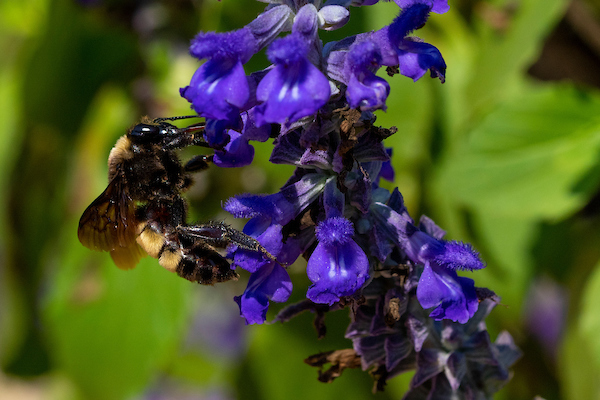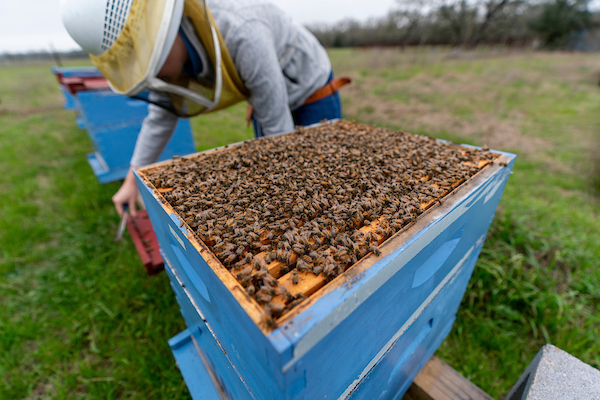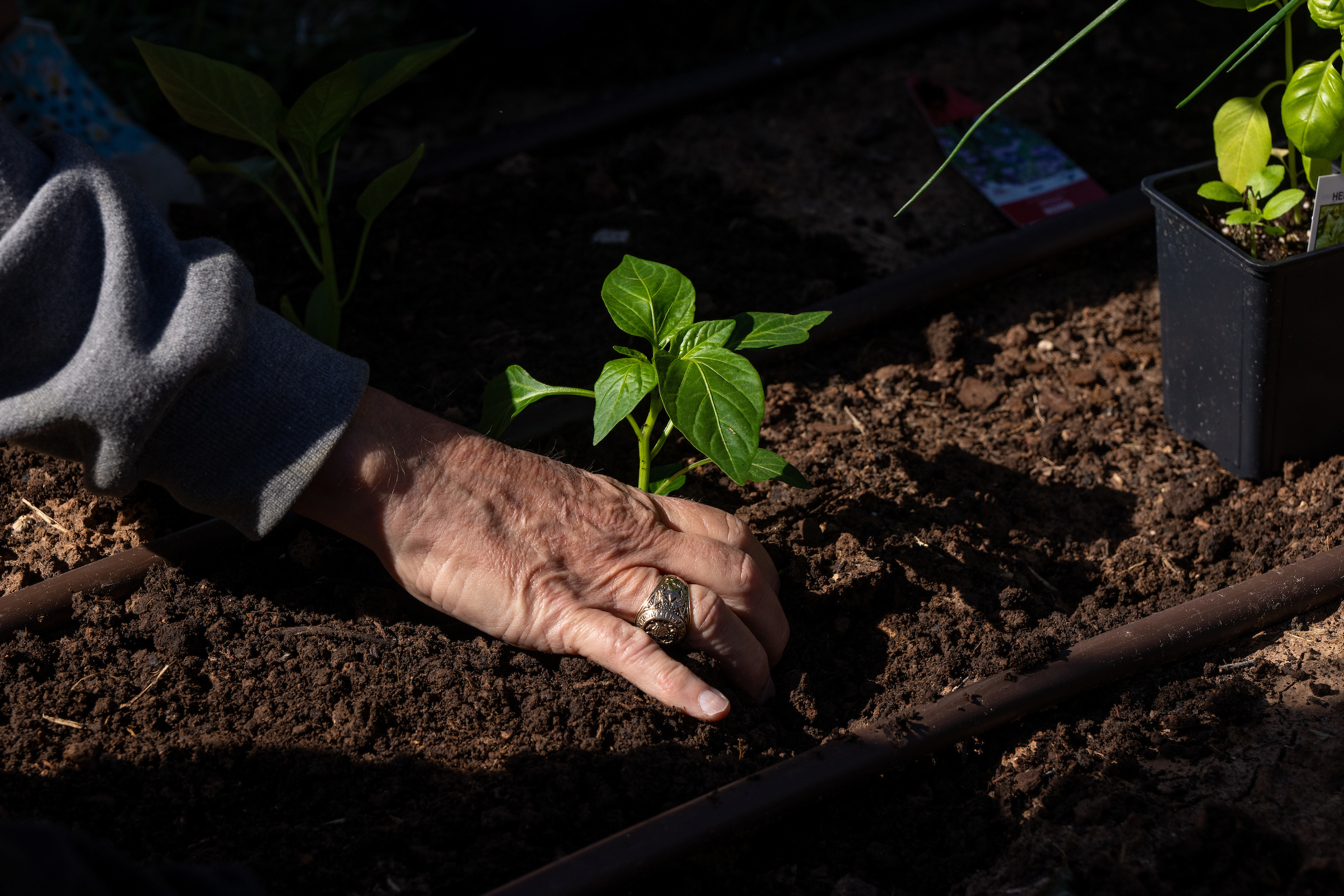A conversation with Mary Reed, bee expert and chief Texas apiary inspector
AgriLife Research’s chief Texas apiary inspector discusses beekeeping, agriculture
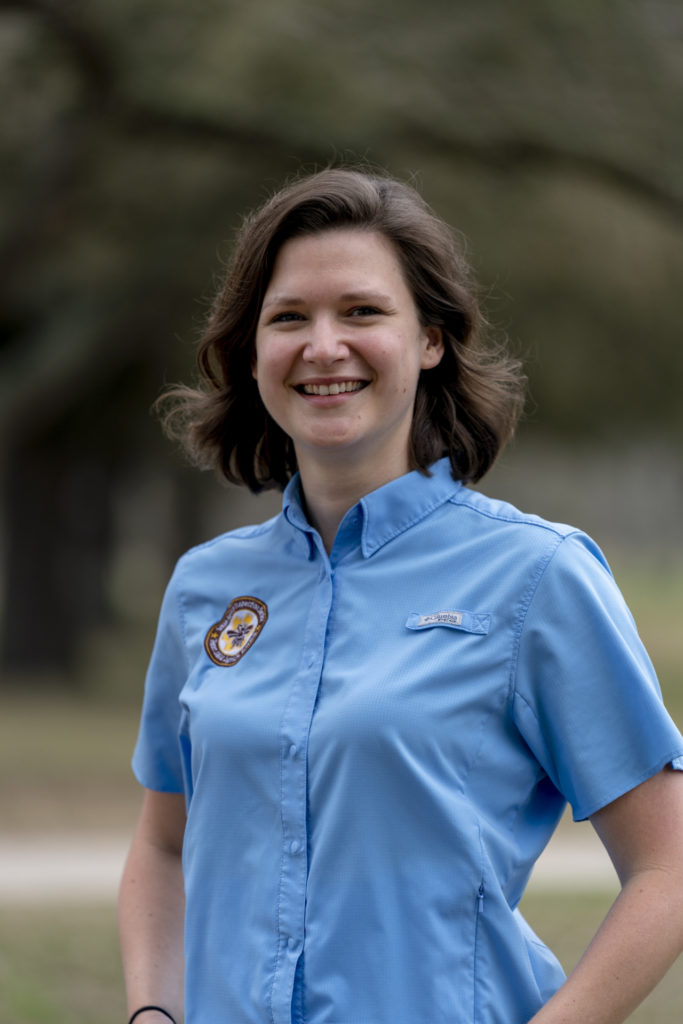
The trajectory of Mary Reed’s life changed after she took a college class on social insects and became fascinated by honeybees, their biology and their close ties with agriculture. This newfound fascination led her to take a beekeeping course where she delved deeper into the details of honeybees, hive management and beekeeping practices.
Years later, Reed serves as the chief Texas apiary inspector with Texas A&M AgriLife Research’s Texas Apiary Inspection Service where she influences the landscape of Texas agriculture through her work.
Reed sat down to discuss her experience in the apiary industry and the unique role Texas plays to keep the industry buzzing.
What is the Texas Apiary Inspection Service?
The primary mission of my office is to conduct health inspections on beekeeping operations across the state. As one of the largest migratory beekeeping states with commercial operations entering Texas from across the country, these operations must be inspected for the presence of honeybee pests and diseases. Without a proper inspection, these diseases could quickly spread across the state and the nation, causing negative impacts on the apiary industry, and thus the agricultural industry, as a whole.
Housed on The Texas A&M University System RELLIS Campus, my office routinely performs our diagnostic services, mobilizes for inspections and holds educational opportunities for industry stakeholders.
What honeybee diseases do you look and test for?
On an inspection, we primarily keep an eye out for symptoms of foulbrood disease, both American and European strains. If we spot symptoms of either disease, we will conduct an infield test for an additional diagnosis. In a positive case of American foulbrood disease, we will quarantine the yard until the issue is resolved because it is a disease that can spread very quickly and is extremely damaging to beekeeping operations.
At our office on the RELLIS Campus, we also process samples for Varroa mites and Nosema spores. Varroa mites are parasites that attack and feed on honeybees and are considered to be the No. 1 problem in the apiary industry. Nosema is a gut microsporidian that can have a significant impact on the overall health of a colony if there is a high infection rate. We offer Varroa and Nosema diagnostic services to all beekeepers for free.
A beekeeper should be aware of a plethora of other pest and disease concerns. Because our office has limited personnel, we narrowed our focus to inspection efforts for migratory operations, however, we cater to all Texas beekeepers. I encourage all beekeepers to contact us if they have concerns about the health of their hives or have any questions about beekeeping and the apiary industry. We are happy to answer any questions and direct beekeepers to credible information and resources that they may need.
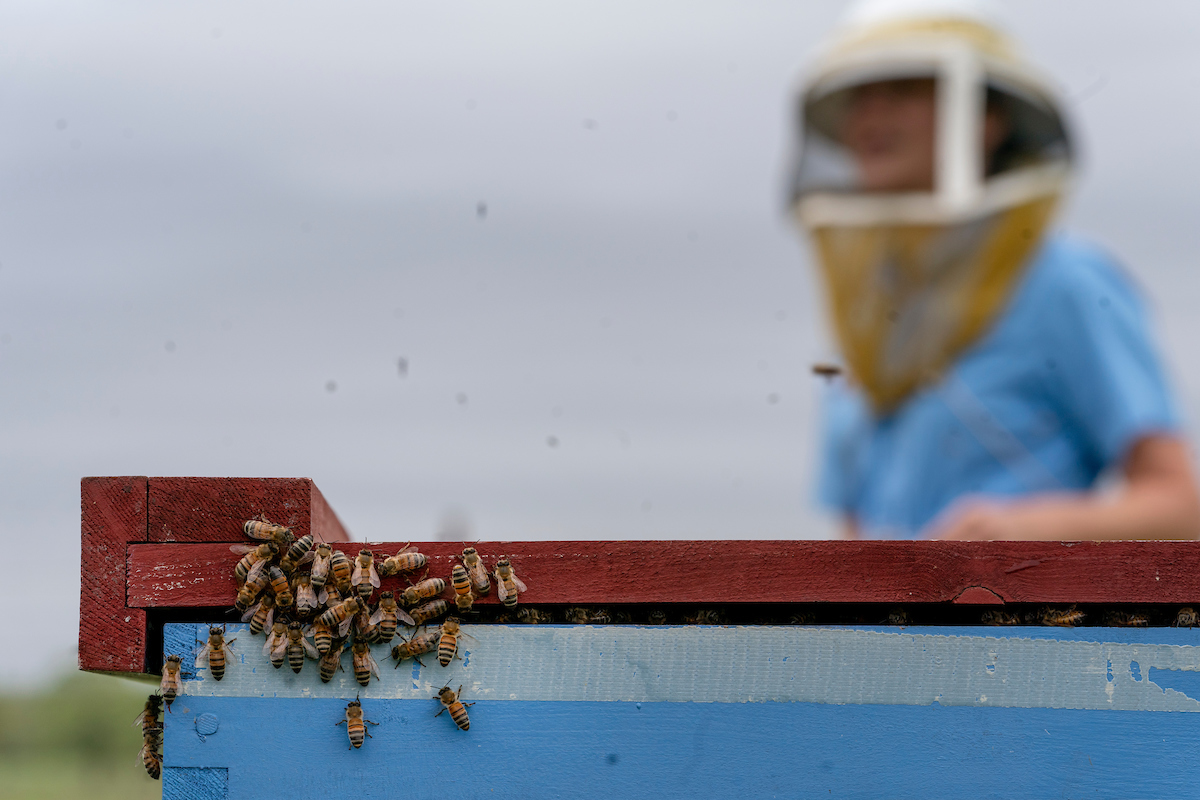
Texas is one of the largest migratory beekeeping states with approximately 180 commercial migratory beekeepers coming to Texas at least once a year.
Chief apiary inspector Mary Reed
Why should Texans care about bees?
Bees are incredibly important to the health and diversity of Texas agriculture. Often, people think of honeybees and just think of one or two hives in somebody’s backyard. But in reality, and specifically here in Texas, beekeeping is considered to be “big agriculture.”
Many of the fruits and vegetables available to us in the grocery store are a result of bee pollination. Without pollinators, we would not have the diversity of food that we enjoy. In addition, bees provide this vital and efficient service for free. Without them, the pollination of crops would become cumbersome, resulting in a decrease in produce, which would likely cause accessibility and nutritional implications.
As an extension of these pollination services, bees support other industries as well. For example, animals and livestock have access to a diversity of forage, contributing nutritional benefits, while medicines and plant fibers are also a result of insect pollination.
What is the unique migratory nature of the Texas apiary industry?
Texas is one of the largest migratory beekeeping states with approximately 180 commercial migratory beekeepers coming to Texas at least once a year. Many of these beekeepers move their hives to Texas in the spring after almond pollination in California to take advantage of the early warm weather and nectar and pollen flows. These early resources help beekeepers strengthen their hives, raise new bees and queens, make splits and make a honey crop.
Texas provides a variety of nectar resources that beekeepers utilize to produce the diverse types of Texas honey. As such, Texas is one of the leading states in honey production nationwide. There are also several pollination opportunities within Texas that beekeepers seek out. These local pollination events result in a variety of produce celebrated and enjoyed by Texans.
One of the greatest challenges beekeepers around the country face today is a loss of locations to keep bees, as well as a lack of resources beneficial for bees and other pollinators. Texas is large enough to not only provide beekeepers a space to keep bees, but an array of natural resources to support healthy hives.
If someone is interested in beginning beekeeping, how can they get started?
I emphasize the importance of educating yourself before purchasing hives, so you know what you’re getting into and how to best care for the bees. If possible, it helps to work with an experienced mentor before getting bees and during your first couple of years. A mentor could work with you on managing the hives and answer questions and provide guidance on how to be a successful beekeeper in your area.
If you’ve already done your research and are looking for a more in-depth, structured environment, I’d also refer to the Texas Master Beekeeper program. This program is designed to challenge beekeepers in their knowledge of honeybees, beekeeping and factors that can affect a honeybee colony. This program encourages beekeepers to dive deeper into the biology of a honeybee colony and the behaviors a colony may exhibit. This allows a better understanding of how certain factors such as health, environmental and management practices are affecting the colony and what that means for the success of the colony. The program also aims to encourage beekeepers to share their knowledge and passion with others, thus generating ambassadors for the apiary industry.
Additional information on the apiary industry in Texas is available through local Texas A&M AgriLife Extension Service offices across the state, the Texas Beekeepers Association and the Texas Apiary Inspection Service website.

